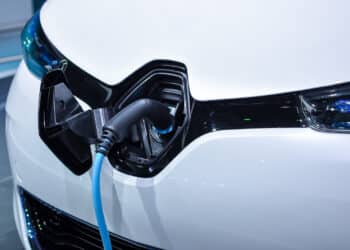
When Ford Motor Credit Co. announced it would start to use machine learning for underwriting practices in August, the automotive industry took notice.
It is estimated that 30 to 40 auto lenders are looking at alternative credit data for underwriting, either in active usage or in viability testing, according to Brian Landau, senior vice president of financial services and automotive business leader at TransUnion.
Machine learning is a type of artificial intelligence that gives computers the ability to learn without manual input; for underwriting, computer algorithms can use nontraditional data points to determine risk and creditworthiness. For example, machine learning can assess data points, such as whether applicants supplied the same cell phone number on previous loan applications and whether they have occupational licenses, Jim Moynes, vice president of risk management at Ford Credit, told Auto Finance News.
And, because the platform is capable of “learning” over time, it can propose changes to variables as patterns evolve or emerge, or recognize and incorporate macroeconomic changes into its assessments, Ford said in a statement.
According to the Consumer Financial Protection Bureau, one in 10 American adults have no credit record, making them difficult to underwrite using traditional methods. Additionally, 19 million consumers are considered thin-file or stale-file, meaning their records are either incomplete or too old for an accurate Fico, VantageScore, or another credit score.
But these thin-file consumers are only a part of the reason alternative data and artificial intelligence underwriting is heating up; there’s also a reaction from lenders and captives to economic climates, as well as the maturity of the science of artificial intelligence.
Increasing Portfolio, Decreasing Risk
In 2013, TransUnion purchased L2C, an Atlanta-based predictive analytics company that utilizes alternative data, and TransUnion has since worked with many auto lenders to test out the product.
Lenders are seeing that alternative data approves 20% to 25% of applicants that they would not have approved prior, Landau said. Alternative data offers a “huge benefit” without exposing the lender to additional risk, he added, which is a significant reason for the increased interest from lenders — particularly with charge-off and delinquency rates on the rise.
Despite a strong economy where auto lending experienced its 25th consecutive quarter of loan growth — with the total outstanding balance now up 70% from a post-crisis low of $700 billion in 2010 — delinquencies and charge-offs are increasing, according to investment management firm Manning & Napier.
Auto loan balances increased $23 billion year over year in the second quarter, extending a six-year trend of growth, according to a report from the Federal Reserve Bank of New York. Originations declined 2.9% year over year to 6.7 billion units in the second quarter, while 60-day delinquencies increased to 1.23%, from 1.11% at the same time last year, according to TransUnion.
Working with fintech startup ZestFinance, Ford Credit found that revising its credit policies will not increase its risk appetite, as it more accurately predicts risk against a broader group. But, alternative credit data decisioning would not be a reliable source of portfolio growth if the technology was not up to snuff.
Robots Rising
The concept of artificial intelligence has been around since antiquity, but only in the past five years has AI been considered a possibility for credit decisioning, according to Eric Hathaway, vice president of marketing at Zoot Enterprises, a provider of origination, acquisition, and decision management solutions.
“From a tech perspective, the AI we developed wasn’t doing what it needed to do,” he said. “It wasn’t replacing the jobs we needed to be done, but over the past five years … as AI started to really ‘learn’ [using machine learning], I think that has been the spur.”
These advancements include better hardware and software, larger data provided by the internet, and new techniques that make training deep networks — also known as neural nets — easier, according The Economist.
In fact, AI and credit decisioning are becoming such a hot commodity now, there are roughly 2,000 digital startups in the space, according to a recent report from NPR.
To that end, with only 30 to 40 auto lenders looking at alternative data for credit decisioning, the market could become steeply competitive — especially as more lenders enter the market, causing existing lenders to aim for portfolio growth while mitigating risk.
Correction: Rising losses did not contribute to Ford Credit’s decision to conduct a study with ZestFinance, as was incorrectly stated in an earlier version of this article in the November issue of Auto Finance News.





